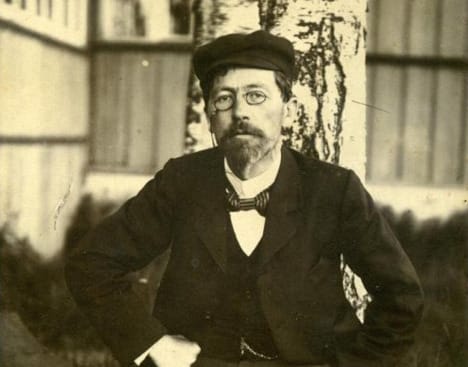A popular quote attributed to the classic about the severity of losing loved ones is popular on the Internet. We checked to see if he wrote anything similar.
This statement with attribution to the Russian writer and playwright can be found on websites with selections quotes And aphorisms, in articles on websites libraries, on social networks (“VKontakte", X, Facebook, Threads, Instagram) and on blogging platforms. Modern writers include this phrase into your works, also attributing authorship to Chekhov. Users services Questions and answers are interested in who this statement belongs to.
Anton Pavlovich Chekhov is one of the most famous Russian classics, so it is not surprising that all the literary heritage remaining after his death in 1904 was carefully studied, republished many times and subsequently digitized. The most complete collection of his texts, including both literary works and journalism, notes and letters, was published in 30 volumes in the 1970s–1980s. "Checked" could not find a popular quote in this collected essays. It is not found in National Corpus of the Russian Language, which contains an extensive collection of Russian-language texts written from the 11th to the beginning of the 21st century. In service Google Books this statement with attribution to Chekhov is found only in modern works published many decades after the writer’s death.
At the same time, the Internet widely widespread very similar phrase, the authorship of which is attributed to a completely different person - a Roman poet who lived about 2000 years before Chekhov Publilius Sira. Latin attributed to him statement "Homo totiens moritur, quotiens amittit suos" in translation almost literally coincides with what is attributed to the Russian classic: “A person dies as many times as he loses loved ones.”

The earliest “Verified” source discovered, in which Chekhov is named as the author of the quote about the loss of loved ones, is a collection of aphorisms “Wisdom with a smile and laughter to tears" It was posted on the Samizdat website in October 2013. Judging by the data of some books online stores, the paper version was released no later than August 2012, but the exact imprint could not be found. The compiler of the collection is a certain Alexander Kotlyarevsky. One would think that we are talking about a historian and Slavist Alexandra Alexandrovich Kotlyarevsky, who was a contemporary of Chekhov, but he clearly has nothing to do with the above-mentioned collection. Firstly, among his works there are no works with this title, and secondly, given that the scientist died in 1881, he could not include in the collection, for example, quotes from Stalin or anecdotes about Stirlitz. According to the same online stores, among other works by Kotlyarevsky, the compiler of “Wisdom with a Smile” (published in as many as nine volumes), there are also the collections “Grandfather’s Tales” and “Poems.” Their content gives no reason to believe that Kotlyarevsky has any expertise on the topic of Chekhov’s literary heritage.
To a large extent, the actor and publicist Stanislav Sadalsky contributed to the popularization of this statement. On June 8, 2015, he published on his LiveJournal blog obituary on the death of the psychic Juna Davitashvili, where he used the phrase under discussion, attributing it to Chekhov. This obituary was then quoted by many media and tabloids, for example “Komsomolskaya Pravda", "Evening Moscow", "Radio Liberty", BFM.ru, "Express newspaper", StarHit, "7 days", etc. After these publications, Internet users began to attribute the quote to Chekhov much more often. At the same time, Sadalsky did not claim that Chekhov was the author of the phrase, he wrote that it seemed so to him. Perhaps he saw the statement in a book by Kotlyarevsky or another similar collection of aphorisms, and then unwittingly released the quote to the people.
Thus, Chekhov has nothing to do with the statement being analyzed about the severity of the loss of loved ones. A very similar quote was in use even before our era, but nothing similar could be found in the bibliography of the Russian writer and playwright. Apparently, at first this phrase was groundlessly attributed to Chekhov by the author of a collection of aphorisms, after which it was popularized with the same attribution by actor Stanislav Sadalsky, followed by the tabloids that circulated his post.
Cover photo: Metelev, Public domain, via Wikimedia Commons
- Did Chekhov say: “If a person doesn’t smoke or drink, you inevitably wonder: isn’t he a bastard?”
- Is it true that Anton Chekhov drank a glass of champagne before his death?
- Is the theory of five stages of accepting the inevitable true?
If you find a spelling or grammatical error, please let us know by highlighting the error text and clicking Ctrl+Enter.






